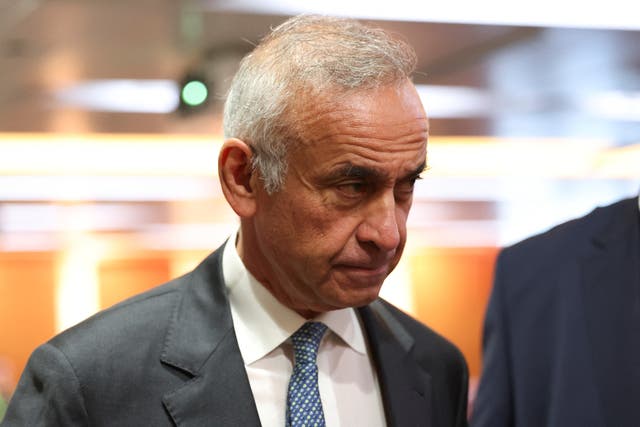Britain is ‘sick man of Europe’ – new report into health of the nation
Health challenges facing the nation have reached ‘historic proportions’ – IPPR

Britain is the “sick man of Europe” when it comes to health, according to a new report which highlights serious concerns about a rise in the number of people off work due to long-term illness.
Health challenges facing the nation have reached “historic proportions”, according to the Institute for Public Policy Research (IPPR).
Researchers point to a stark rise in people who are missing from the workplace due to long-term illness since 2020.
They examined absence trends pre-2020 and compared them to the number off work due to long-term sickness at the start of 2024.

And this figure may grow significantly higher, they warned.
“While it is hard to predict whether increases in economic inactivity due to sickness will plateau or continue to grow in coming years, should the rate of growth continue at the same pace it has since 2020, we would expect economic inactivity due to sickness to reach 4.3 million by the end of the next parliament,” the researchers said.
It comes as part of the final report of the IPPR’s Commission on Health and Prosperity.
The Commission is co-chaired by Lord Darzi – who recently led a hard-hitting review into the state of the NHS for the Government – and England’s former chief medical officer, Professor Dame Sally Davies.
Lord Darzi’s wide-ranging review, published last week, concluded that the NHS is “in serious trouble” and has prompted Labour to promise wide-spread reform of the health service.
Now the new IPPR report also highlights how long-term illness is impacting productivity and the labour supply.
“The term the ‘sick man of Europe’ is often used to describe countries going through severe economic turmoil or social unrest. In Britain today, it has become a more literal reality,” the authors wrote.
“We lag our peers on health outcomes, the number of people with a long-term condition is rising, and people are spending longer in poor health. And health is worsening throughout the life course – bringing real challenges for children, adolescents, working-age adults, and those who have retired.
“That is, the nation’s health challenges have reached historic proportions.”
The authors say that improving the nation’s health could be an “innovative strategy to revitalise the economy”.
“Better health will only be possible if we move from a sickness model of health policy to a health creation one,” they wrote.
This model could “focus intervention on the places where people really spend their time” – work, school, at home and in communities.

– A “right to try” for people on health or disability benefits: a government commitment of a new and guaranteed period where people in receipt of benefits can try work with no risk to welfare status or award level.
– A new neighbourhood health centre in every part of the country.
– More tax for so-called “health polluters” including tobacco, alcohol and unhealthy food companies to raise money which could fund new health schemes.
– Universal free school meals, restoration of Sure Start centre funding and an end to the two child limit on benefits.
– New Health and Prosperity Improvement zones.
A health creation model could potentially add 10 years to healthy life expectancy by 2055 and to halve regional health inequalities, the IPPR said.
This will focus on three key areas – creating far more opportunities for care in the community, such as scans and tests in town centres and more GP appointments; preventing ill health taking hold in the first place through getting the nation to be healthier; and making sure the NHS makes the most of digital opportunities.
Lord Ara Darzi said: “Our commission was among the first to identify the rising sickness as a major and immediate post-pandemic fiscal challenge. Now, as the Government sets up its health mission, our final report provides a ready made policy vision for a new approach to public health.”

“We simply should not tolerate decline in our children’s health any longer – it is time for bold action to ensure a health inheritance for future generations.”
She said the nation has become “steadily sicker”.
Measures to help the public could include tackling unhealthy foods using similar measures that were used to curb tobacco use, she told Sky News.
“We have to take a lesson from how we’ve prevented tobacco spreading, how we’re beginning to control it and improve things, and do the same with unhealthy foods drinks.”
She said the Government should “get into how we regulate to help support people being healthy,” adding: “Libertarians will say, ‘Oh, that’s wrong’, but I would argue that nothing constrains freedoms more than sickness that could have been prevented, avoided or even better managed, so it’s really important that we help people.
“We don’t need to be the unhealthiest country in Europe.”
Chris Thomas, head of IPPR’s Commission on Health and Prosperity, said: “Founding a health creation system is a way to fundamentally reimagine health policy – fit for the 21st century.”
A Department of Health and Social Care spokesperson said: “This Government will shift the focus of the NHS from just treating sickness to preventing it in the first place.”




